Hints for Creating an “18-Year-Old Society”With less than 10% of young Japanese believing Japan will have a better future, support is needed for a society that inspires dreams
In the fall of 2019, The Nippon Foundation conducted an “Awareness Survey of Society and Country,” covering 17- to 19-year-olds in nine countries: China, Germany, India, Indonesia, Japan, South Korea, the United Kingdom, the United States, and Vietnam. The survey showed that in a number of areas, young people in Japan ranked last compared with their peers in other countries in terms of considering themselves to be adults, having dreams for the future, and believing that they can change society or their country.
For example, in response to the question “Do you consider yourself to be an adult?”, roughly 29% of Japanese respondents replied “Yes,” with the second lowest figure being 49% for South Korean respondents, and roughly 80% or higher for respondents in six of the nine countries. When asked “Do you believe you can change your country or society?”, roughly 18% of Japanese respondents replied “Yes,” with the second lowest figure being 40% of South Korean respondents. When asked how they viewed their country’s future, only 9.6% of Japanese respondents selected “Getting better,” compared with roughly 20-30% for respondents in four countries and more than half for respondents in the remaining four countries, with a high of 96% for respondents in China.
We asked Masashi Fujiki, who teaches at Tokyo Gakugei University International Secondary School and follows these issues, for his insights on the subject. His overall reaction was that he was not surprised, and he noted that numerous data show young Japanese persons having low self-esteem. With regard to the respective views of the future of one’s country, the conditions in each country need to be taken into account; young people in countries undergoing rapid development are bound to be more optimistic than young people in other countries. Mr. Fujiki commented that if you had asked this question to young Japanese persons during the Meiji Period, when the country was opening to the outside world and undergoing rapid industrialization, a much higher percentage would have had a more positive outlook.
Opportunities to interact with society needed
Mr. Fujiki told us about a class on international cooperation and social contribution that he has been teaching for six years, which he started in the hope that it would give students an opportunity to interact with society. The class is unique in that the students themselves choose the themes related to international cooperation and social contribution that interest them, and study them through dialogue. This is based on his belief that for students to deepen their understanding, it is important for them to take the initiative. Then, in as free an atmosphere as possible, they experience a series of small successes as they think about what they can say, listen to others’ opinions, and reply to others’ comments. This provides them with experience that will be useful when they enter university or become members of adult society, and can also have a positive effect on the young people around them.
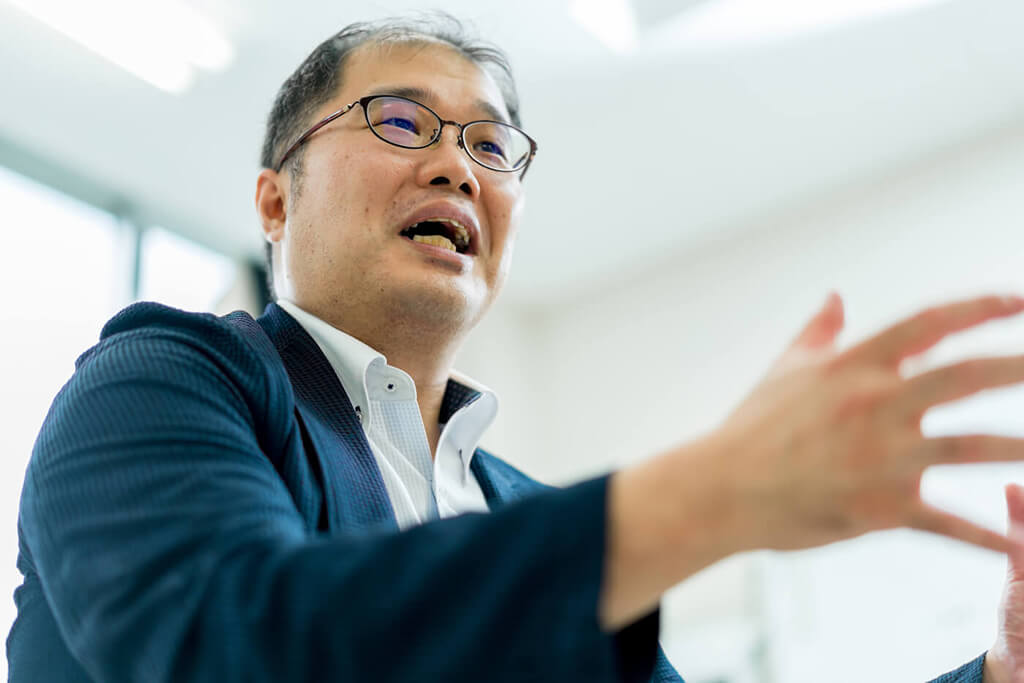
During these classes, Mr. Fujiki will give occasional advice, but in general says very little, striving to create an environment in which the students can talk in a relaxed atmosphere. He says that because he doesn’t take the lead, the students realize that they need to do the talking. The one thing he asks, however, is that they engage in “dialogue” rather than “debate.” It is not necessary to disagree with someone, and is fine to simply understand that a different way of thinking exists. This makes it easier for the students to express themselves freely and creates an atmosphere in which a variety of opinions are expressed, some of which can be surprising. He also does things like arranging the chairs and desks in a circle so that everyone can see everyone else’s faces, or in other ways to match the theme of discussion.
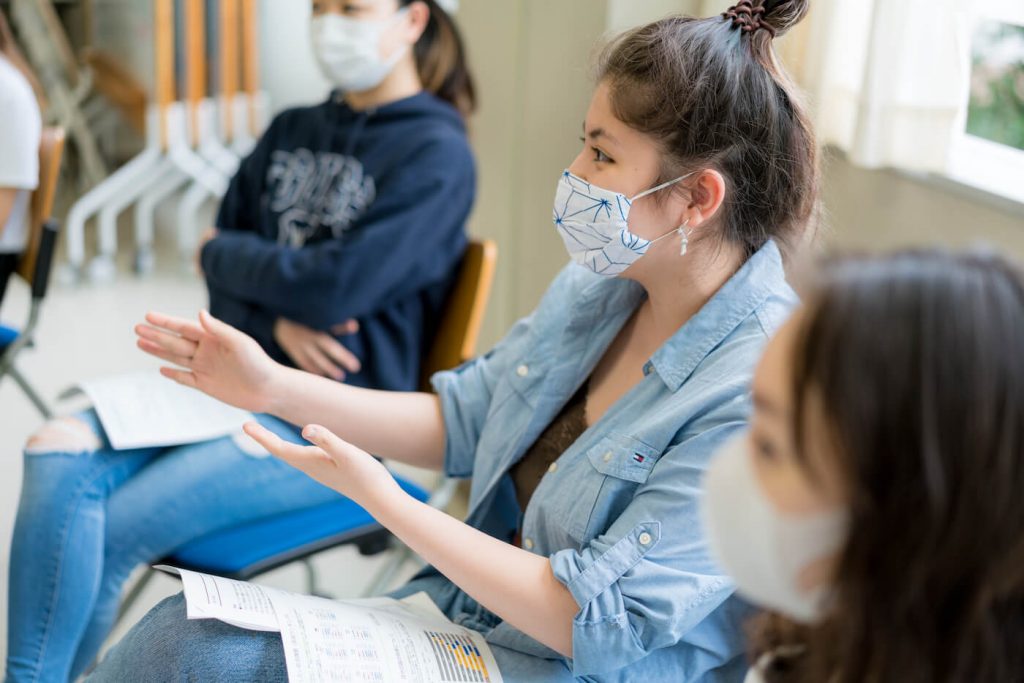
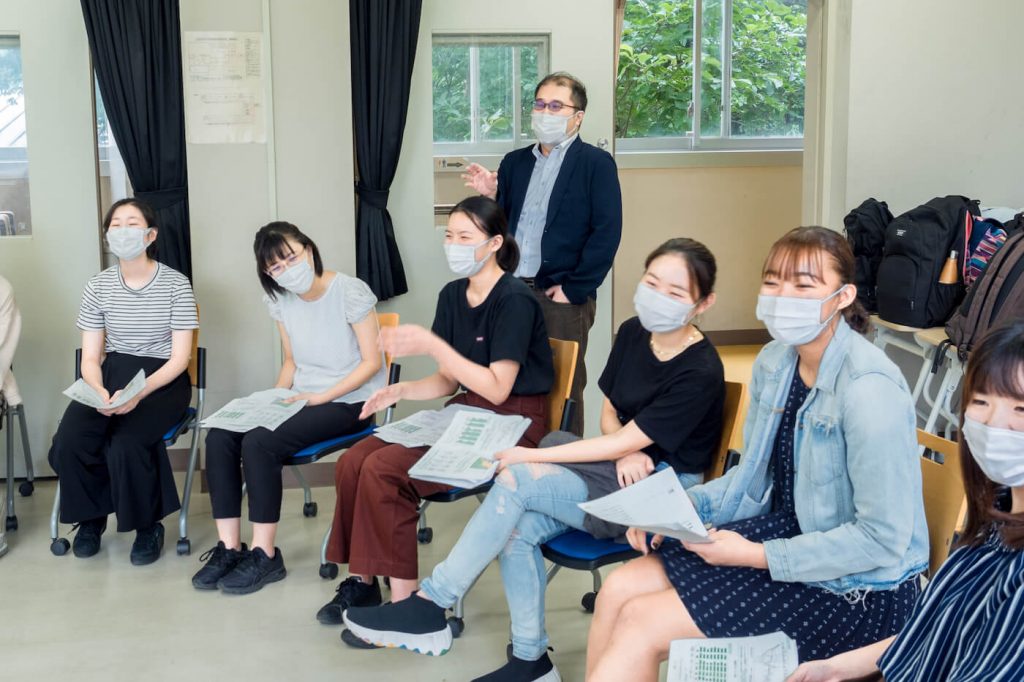
The students use social media to facilitate the classes by sharing materials related to the theme in advance, and for sharing summaries of the opinions expressed afterward. Experts may also be invited to speak as guests at the students’ request. Mr. Fujiki explains that he sometimes introduces elements that are out of the ordinary to increase the students’ motivation; for example, he recently set up online talks with Japan International Cooperation Agency (JICA) staff members working in Saint Lucia, Nicaragua, and East Timor.
Mr. Fujiki studied medieval Japanese history in graduate school, and volunteer work he did at the time has had a major impact on how he operates these classes. He explains that in graduate school, the things he was able to study and people with whom he could interact were limited, and he wanted to create something together with many people. He learned about a program run by an NGO that conducted exchanges between Israeli and Palestinian children and Japanese children, and joined as a volunteer. He was working with many other university students and adults and enjoyed the work very much, volunteering practically every day. He wants his students to have a similar experience, and now serves as an advisor for classes related to social contribution and for social action teams.
Mr. Fujiki works with social action teams as a way to enable students to learn about society. He arranges study tours across Japan, and by interacting with the people in those places, students develop a desire to contribute to those communities and this leads to actions to resolve local issues.
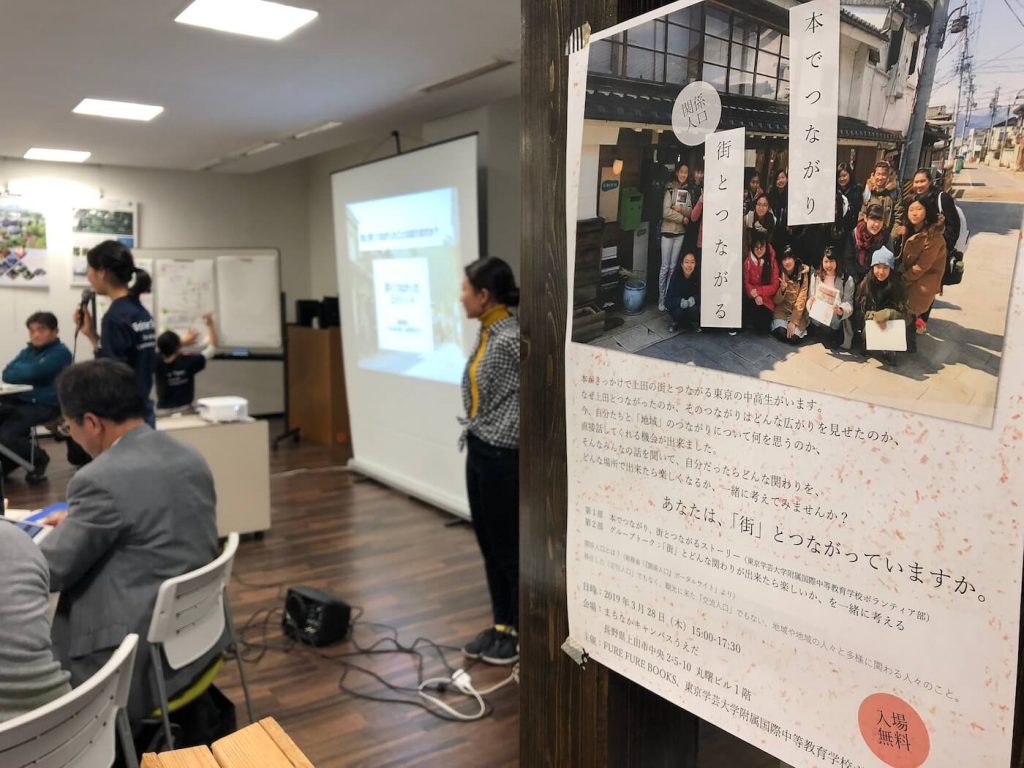

In one community, students proposed gift items for a furusato nozei program (where a person can pay local taxes to a municipality other than their place of residence and receive a gift in return). In another case, after returning from a study tour, students wanted to show pride in their own community (Tokyo’s Nerima ward, where the school is located) and promote it to others their age, so they made a map of cafes and restaurants targeting junior and senior high school students. This proved very popular, and stores and shops were eager to display and distribute the maps. Visiting places where they would not normally go, and interacting with people of other generations and regions, broadens students’ interests and instills self-confidence and the ability to pursue new challenges.
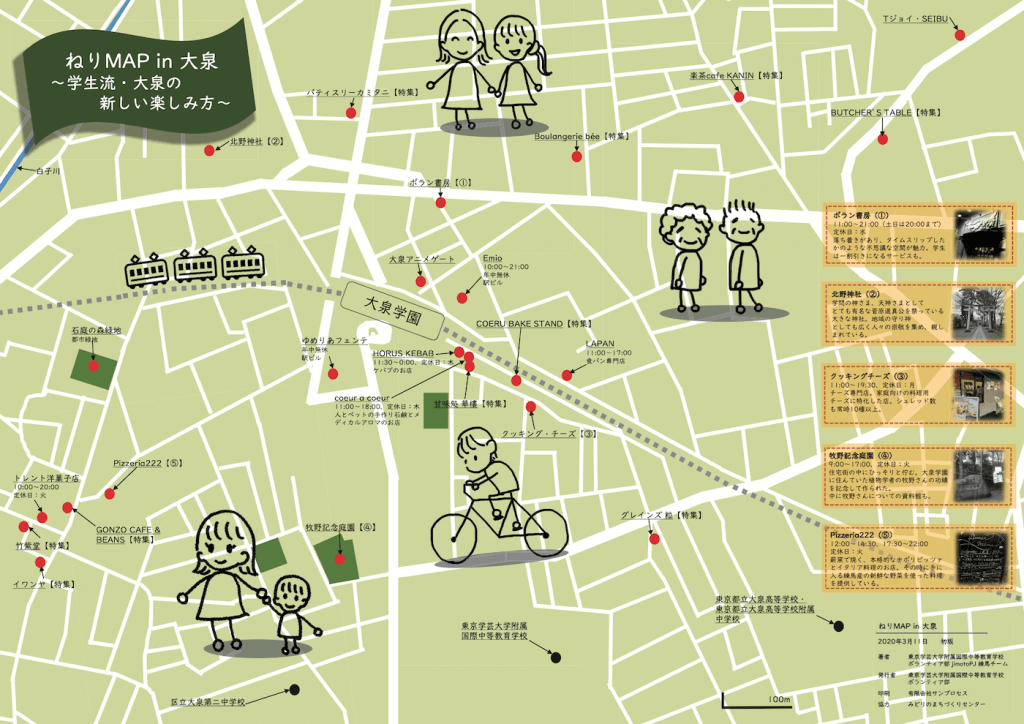
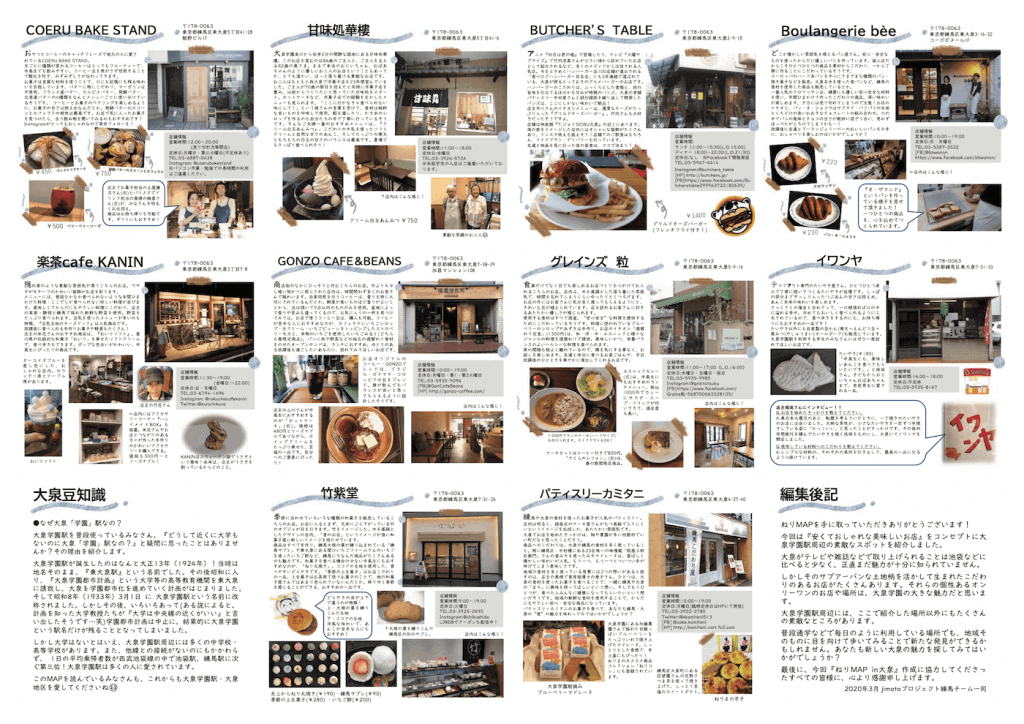
Action taken from the same perspective is also important
Mr. Fujiki also points out that adults are an important part of deepening students’ understanding of society. He notes that surveys of Japanese adults’ views of their country and society show similar results to those of The Nippon Foundation’s survey of young persons. They feel pressured by work and when they return home want to do nothing but sleep, and don’t have the time or energy to give much thought to society. Nevertheless, he believes it is important for families to discuss social problems and to make time for activities where parents and children can volunteer together.
If adults can do things alongside school-age children from the same perspective, they will be able to expand the possibilities for those children. If, instead of bragging about their success, adults tell children that they started out just like them, and recount the setbacks they faced along the way, children will develop self-confidence and not be afraid of failing. For young people to have aspirations for their country’s future and confidence in their own abilities, they need opportunities to interact with society and to have adults take an interest and work alongside them.
Related News
Contact
Public Relations Team
The Nippon Foundation
- Email: cc@ps.nippon-foundation.or.jp



